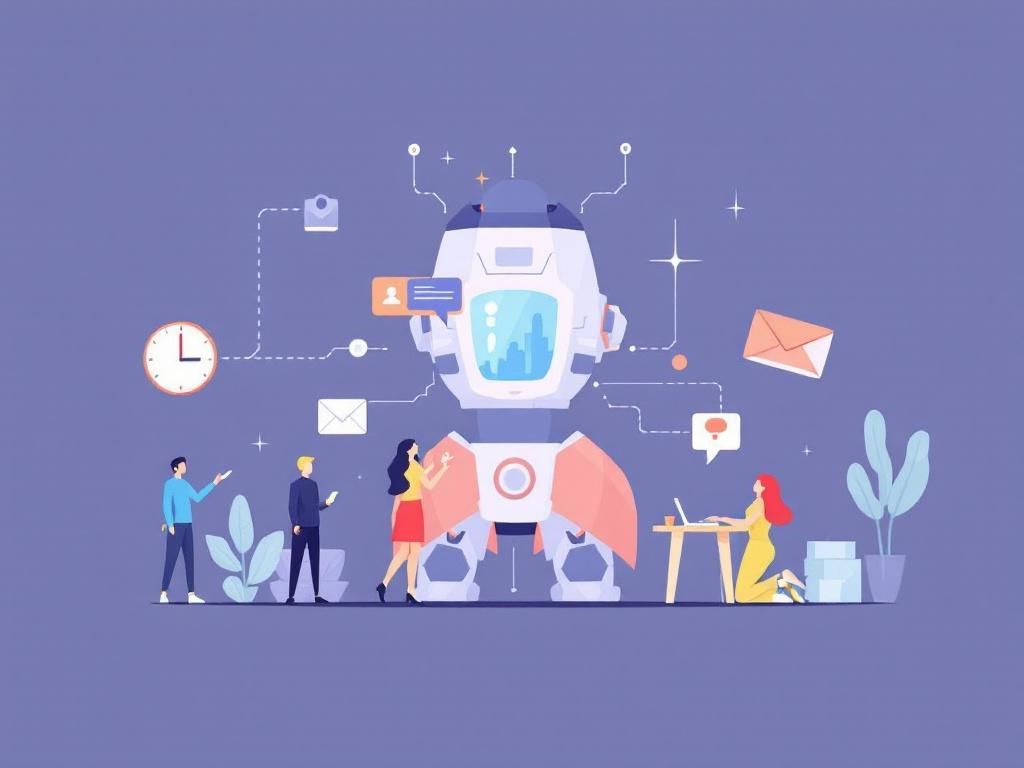In today’s fast-paced digital world, businesses are continuously seeking ways to improve customer experience. Contact centers have become a critical touchpoint for customer interactions, and leveraging artificial intelligence (AI) in these environments can transform service delivery and customer satisfaction. AI technologies can streamline processes, automate responses, and provide insights that human agents can use to enhance the overall experience.
The Role of AI in Modern Contact Centers
AI is reshaping the landscape of customer service by providing tools that enhance both the efficiency of contact center operations and the quality of customer interactions. Below are several key areas where AI is making a significant impact:
1. Automated Customer Service
One of the most prominent applications of AI in contact centers is the use of chatbots and virtual assistants. These systems can handle a large volume of common inquiries without human intervention. Benefits include:
- 24/7 Availability: AI can respond to customer inquiries at any time of day.
- Instant Responses: Customers receive answers almost immediately, reducing wait times.
- Scalability: Businesses can handle higher volumes of inquiries without the need to increase staff.
2. Enhanced Personalization
AI systems can analyze previous customer interactions, preferences, and behaviors to create personalized experiences. By leveraging data and machine learning algorithms, businesses can:
- Provide tailored recommendations based on customer interests.
- Send targeted marketing messages that resonate with individual customers.
- Offer personalized support solutions based on past interactions.
AI Technologies Used in Contact Centers
Various AI technologies are utilized in contact centers to enhance the customer experience:
Natural Language Processing (NLP)
NLP enables machines to understand and interpret human language. In contact centers, NLP can:
- Facilitate chatbots that understand customer inquiries effectively.
- Analyze customer sentiment to identify issues and act accordingly.
- Automatically categorize inquiries for better routing to human agents.
Machine Learning (ML)
ML allows AI systems to learn from historical data and improve over time. Key applications include:
- Predictive analytics to forecast customer needs and trends.
- Identifying potential issues before they escalate through anomaly detection.
- Optimizing staffing levels based on predicted call volumes.
Benefits of AI in Contact Centers
Integrating AI into contact centers provides numerous advantages, including:
| Benefit | Description |
|---|---|
| Increased Efficiency | AI can handle routine tasks, allowing human agents to focus on complex issues. |
| Cost Reduction | Automation reduces operational costs associated with staffing and training. |
| Improved Customer Satisfaction | Faster response times and personalized service lead to higher satisfaction levels. |
| Data-Driven Insights | AI can analyze customer interactions to provide valuable insights for future strategies. |
3. Real-Time Analytics
Through real-time analytics, AI systems can assess interactions as they occur. This provides businesses with:
- Immediate feedback on customer sentiments.
- Insights into agent performance for training and development.
- Data to refine workflows and improve service delivery.
Challenges and Considerations
While the benefits of AI in contact centers are substantial, there are challenges that businesses must navigate:
1. Data Privacy Concerns
With the use of AI comes the responsibility of managing customer data securely. Organizations must ensure compliance with regulations such as GDPR and CCPA. Key considerations include:
- Implementing strong data encryption methods.
- Regularly auditing data access and usage.
- Being transparent with customers about data collection practices.
2. Balancing Automation with Human Touch
While AI can handle many tasks, some customers prefer human interaction, especially for complex issues. This balance can be achieved by:
- Allowing customers to easily escalate their inquiries to human agents.
- Training AI systems to recognize when a human touch is necessary.
The Future of AI in Contact Centers
The evolution of AI technologies suggests that their impact on contact centers will only grow. Some future trends to consider include:
1. Advanced Emotion Recognition
AI systems are expected to evolve to better understand customer emotions through voice tone and facial recognition. This could lead to:
- More empathetic interactions, improving overall customer satisfaction.
- Personalized responses that reflect customer mood.
2. Continuous Learning Systems
AI will likely become increasingly adept at learning from new data, enabling:
- Real-time adjustments to strategies based on customer feedback.
- More accurate predictions of customer needs.
Conclusion
AI presents a powerful opportunity for contact centers to enhance customer experience significantly. By automating routine tasks, personalizing interactions, and leveraging data-driven insights, businesses can improve efficiency and elevate customer satisfaction. However, as organizations integrate AI into their customer service strategy, they must remain mindful of data privacy and the importance of maintaining a human touch where necessary. By embracing the future of AI, contact centers can set themselves apart in an increasingly competitive landscape.
FAQ
How can AI improve customer experience in contact centers?
AI can enhance customer experience in contact centers by providing personalized interactions, automating responses to frequently asked questions, and analyzing customer data to predict needs and preferences.
What are the benefits of using AI chatbots in contact centers?
AI chatbots can handle a high volume of inquiries simultaneously, provide 24/7 support, reduce wait times, and free up human agents to focus on more complex issues, ultimately improving overall customer satisfaction.
How does AI analyze customer interactions?
AI analyzes customer interactions through natural language processing and machine learning to identify patterns, sentiment, and trends, allowing contact centers to tailor their services to better meet customer needs.
Can AI help in resolving customer issues faster?
Yes, AI can help resolve customer issues faster by providing agents with real-time insights, suggesting solutions based on previous interactions, and automating routine tasks, leading to quicker resolutions.
What role does predictive analytics play in contact centers?
Predictive analytics enables contact centers to anticipate customer needs, optimize staffing, and enhance service delivery by analyzing historical data and identifying potential future trends.
Is AI technology scalable for contact centers?
Absolutely, AI technology is highly scalable for contact centers, allowing businesses to easily adjust their AI capabilities as demand fluctuates, ensuring efficient operations without compromising on service quality.




